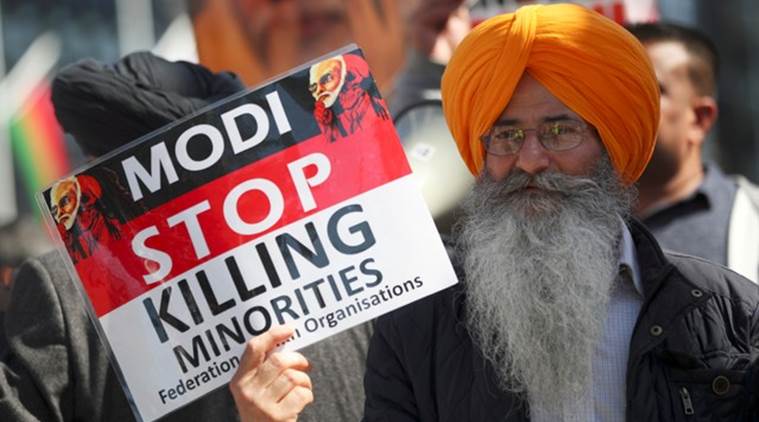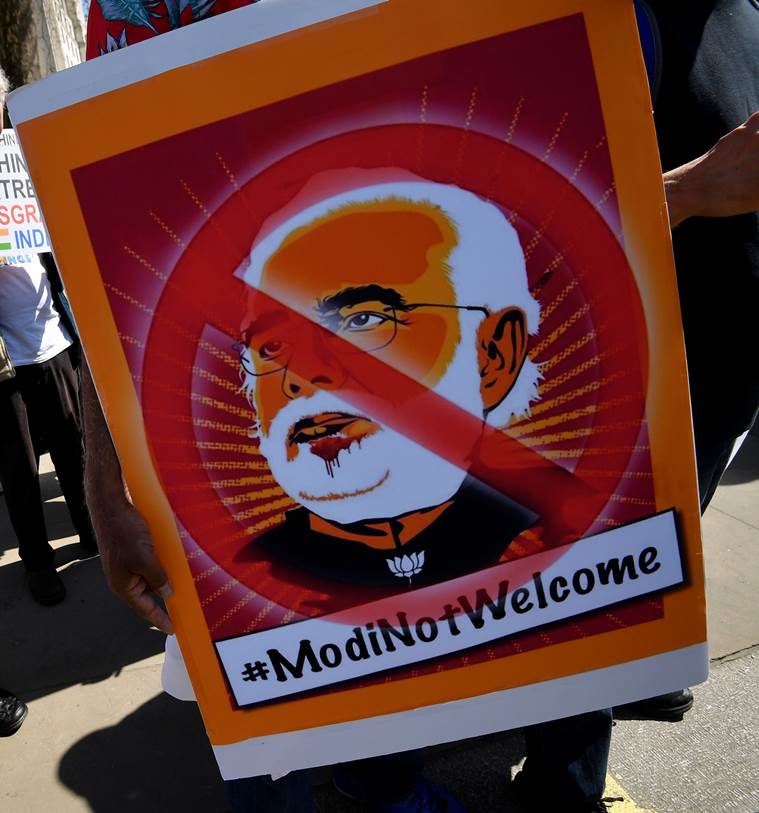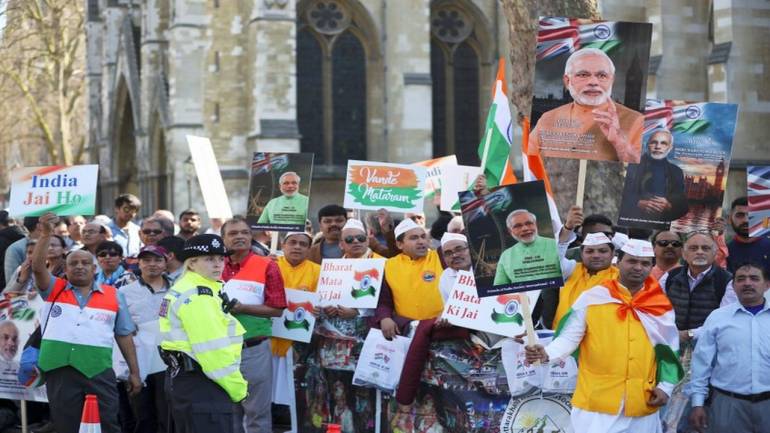Prime Minister Narendra Modi held bilateral talks with his British counterpart Theresa May yesterday, apart from holding other official engagements including meeting Queen Elizabeth II.
 Demonstrators stage a protest against the visit by Prime Minister Narendra Modi in Parliament Square, London, Britain. (Photo: Reuters)
Demonstrators stage a protest against the visit by Prime Minister Narendra Modi in Parliament Square, London, Britain. (Photo: Reuters)
Prime Minister Narendra Modi received a mixed greeting as he landed in the United Kingdom Wednesday on a four-day visit. Anti-Modi protesters raised banners which read “Modi, you have blood on your hands” and “Modi Not Welcome”, reported news agency PTI.
Caste Watch UK and South Asia Solidarity group led this protest. They were protesting the Kathua and Unnao rape cases, the murder of Bengaluru-based journalist Gauri Lankesh and other issues. “Hindu nationalism must be curtailed to avert India sliding towards wholesale dictatorship threatening democratic fabric, rule of law and the unity of India,” a Caste Watch UK spokesperson was quoted as saying by PTI.
His supporters welcomed him with slogans in favour of India’s development. “We want to welcome the Indian Prime Minister to the UK and show him the diaspora support he enjoys,” one of his supporters outside 10 Downing Street said. The Friends of India Society International (FISI) group led the welcome with chants of ‘Chak De India’ and ‘Jai Hind’.
Speaking to the Indian diaspora, Modi said the incidents of rape in the country is extremely sad and brought shame to the country. He added they should not be politicised. “I have never indulged in counting the number of rape incidents in this government and that government. Rape is rape, be it now or earlier. It is extremely sad. Don’t politicise rape incidents,” he was quoted as saying by PTI.
 Demonstrators stage a protest against the visit by Prime Minister Narendra Modi opposite Downing Street in London, Britain. Reuters/Toby Melville
Demonstrators stage a protest against the visit by Prime Minister Narendra Modi opposite Downing Street in London, Britain. Reuters/Toby Melville
On Wednesday, the National Indian Students and Alumni Union (NISAU) UK alleged its delegates were not sent their tickets to attend the Bharat Ki Baat Sabke Saathevent despite their attendance being confirmed. They had, ahead of the event, written a letter to Modi asking for “swift justice and extraordinary measures” to ensure justice in the rape cases. They claimed they were “pressured” to retract their statement as well.
The Prime Minister held bilateral talks with his British counterpart Theresa May yesterday, apart from holding other official engagements including meeting Queen Elizabeth II.


April 21, 2018 at 5:37 pm
The slogans and posters against the PM represents rising dissent and disapproval of his policies